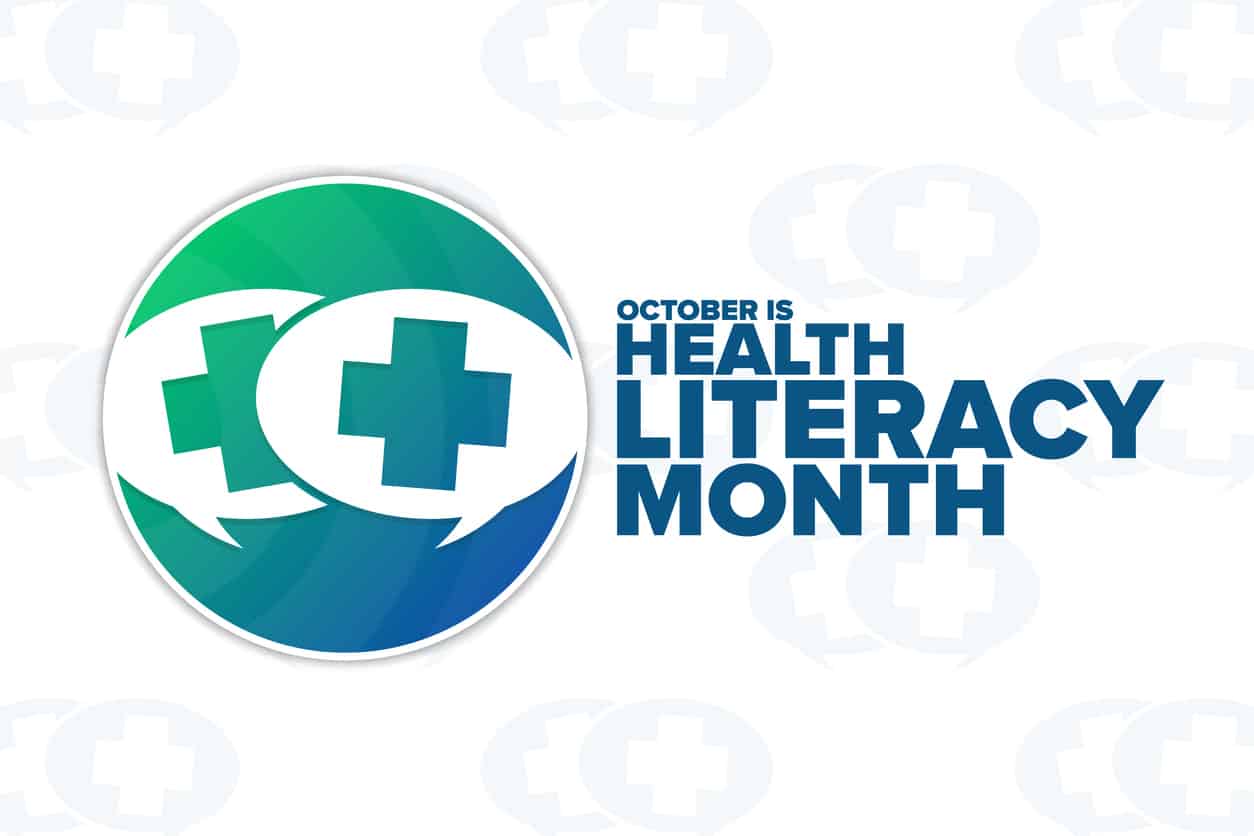Health Literacy Month
Every single day, people find themselves in situations that require them to make decisions about their health. Many of these situations are not made when they are face-to-face with their healthcare provider. In fact, a majority of important health related decisions are made when people are alone and dealing with often unfamiliar and even complex information. This includes reading nutrition labels at the grocery store, trying to figure out what over the counter medicine to take, how much medicine they should give their child, what insurance they should choose, what their insurance covers, and what benefits are available to them.
HR Daily Advisor cites a study released in 2020 that found approximately one-third of adults find health-related tasks like those mentioned above challenging. In addition, the outbreak of the COVID-19 pandemic has highlighted that poor health literacy is an underestimated public health problem, not just in the United States, but globally. As stated by the Institute for Healthcare Advancement (IHA), this month is the perfect time for organizations and individuals to promote the importance of understandable health information. If we all work together, we can create a shift from health literacy awareness to health literacy action by building a world where all individuals have access to quality health outcomes.
What is Health Literacy and Why is it Important?
Health literacy doesn’t only refer to someone’s ability to read. It is the ability to read and comprehend health and healthcare related terminology, numbers, documents, test results, and other informational readings. Health literacy also refers to the ability to act and make decisions based on relevant health information, such as nutrition labels. According to the National Institutes of Health and The Benefits Guide, low health literacy can result in:
- Improper or less frequent use of preventive services
- Inability to correctly fill out paperwork
- Increased chance of taking medications incorrectly
- Poor control of chronic conditions
- Above average emergency room visits and hospitalizations
- Inability to fully understand and take advantage of health benefits
Having low health literacy not only impacts the individual, but it also impacts the employers and the economy as a whole. Low health literacy contributes to more sick days, reduced productivity and increased medical costs. As stated by Mercer, low health literacy costs the U.S. economy an estimated $238 billion annually.
Throughout this month, we will be sharing ways to help improve individual and employee health literacy. If you have not already subscribed to our email list, subscribe now so you do not miss any important updates!








